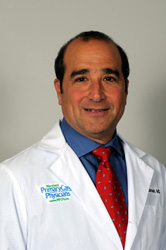Category Archives: Healthy Lifestyle
Surprising Health Benefits of Cold Weather
By: John A. Billon, M.D.
Although cold weather is often associated with health problems such as cold and flu, you may be surprised to learn that the cold has some health benefits, too. Read on to learn how lower temperatures can be good for you.
Fewer allergies: Plants don’t make pollen in the winter, so we allergy sufferers generally feel better in cold weather.
Less bug-borne disease: Pesky insects like mosquitoes and ticks are in short supply in cold weather, greatly reducing our risk of catching the nasty diseases they may carry, such as West Nile virus, Lyme disease and Zika virus.
Reduced inflammation: Similar to putting ice on an injury, cold weather can reduce inflammation and pain. One study found that runners exposed to cold temperatures recovered faster from workouts. This suggests that exercising in winter may result in less inflammation and soreness than in the summer.
Improved brain function: There’s evidence suggesting our brains work better at cooler temperatures. One study found that 62 degrees was the best for schoolchildren to learn, and other research found that people study better when the weather is cold.
Increased fat burn: Besides your body using more calories to stay warm, research suggests being cold can increase your ability to burn fat. It may trigger “brown fat” in the body, a good fat that can burn off other “white” fat. Also, exercising in cold weather boosts your body’s energy expenditure for hours afterwards, so you end up burning more calories.
Better emotional health: We’re less likely to be out and about in cold weather, causing us to spend more time with family and friends. Social interactions like these have been shown to reduce stress, making us more relaxed and happier. Also, if you experience seasonal depression – known as the “winter blues” ─ your doctor may recommend a vitamin D supplement to boost your mood and keep your emotions on an even keel.
 Dr. Billon received his medical degree from Jefferson Medical School, completed his residency program in Family Practice at Stamford St. Peters University Hospital and Robert Wood Johnson, and is certified by the American Board of Family Practice. He practices at MPCP’s Arnold office.
Dr. Billon received his medical degree from Jefferson Medical School, completed his residency program in Family Practice at Stamford St. Peters University Hospital and Robert Wood Johnson, and is certified by the American Board of Family Practice. He practices at MPCP’s Arnold office.
Board Certified for Better Care
By: Michael Riebman, MD and MPCP President
If you look at the online profiles of our doctors, you’ll see they are “board certified” in Family Medicine, Internal Medicine, or Cardiology. This is an important distinction for physicians, and it gives you additional assurance that you and your family are receiving the best possible care.
A little background: To practice medicine, doctors must undergo years of rigorous training, including a premedical college degree, a degree from a medical school, and up to five years of full-time experience in a residency training program of their chosen specialty. Only after completing all these requirements are they able to practice medicine in the community.
Once they complete their specialty residency program, physicians can demonstrate extra expertise in their chosen medical specialty by earning a certification through one of the 24 accrediting organizations belonging to the American Board of Medical Specialties. Certification means a doctor has acquired the extra knowledge and experience to practice a medical specialty, such as Family Medicine, Internal Medicine, or Cardiology.
Doctors earn this board certification by passing an examination administered by the member board in their specialty. The exams assess medical knowledge and clinical judgment, and include real-life situations that demonstrate a physician’s knowledge of the latest medical practices.
Medical boards issue time-limited certifications. Their certifications last for up to 10 years, but doctors have to complete additional work between these re-certifications, known as continuing medical education, such as reviewing their performance on patient care and self-assessing their knowledge of new medical developments.
In short, the re-certification program provides doctors a structured approach to improving the effectiveness of their performance in treating patients. It also assures patients that their doctors remain experts in their fields.
MPCP requires all of our doctors to be board certified. This gives our patients the added assurance they’re getting the highest level of care, and that our physicians are committed to keeping their skills sharp and up to date.
 Dr. Riebman is certified by the American Board of Family Medicine and is the current president of Maryland Primary Care Physicians. He sees patients in MPCP’s Annapolis office.
Dr. Riebman is certified by the American Board of Family Medicine and is the current president of Maryland Primary Care Physicians. He sees patients in MPCP’s Annapolis office.
Why You Need a Checkup (Even If You Feel Fine)
By: Manuel Skow, P.A.
If you feel okay, you don’t need to see the doctor, right?
Wrong. An annual checkup with your primary care doctor should be part of your regular health routine, just like exercise. Here are five good reasons to schedule a checkup, even if you feel fine.
1. Staying healthy
Keeping up to date with vaccinations and screenings is basic to good health. Vaccinations can prevent some serious diseases, such as measles, polio, diphtheria, whooping cough, German measles, mumps, tetanus, rotavirus, the flu and even cervical cancer. And screening tests are done to detect potential diseases in people who do not have any symptoms, leading to the early identification of serious conditions such as high blood pressure, high cholesterol, diabetes and cancer. Early detection is important because it provides the best opportunity for a cure.
2. Knowing your numbers
Do you know your numbers? They include:
- Blood pressure
- Cholesterol level
- Blood sugar level
- Body mass index
High blood pressure and blood sugar, and unhealthy weight and cholesterol, greatly increase your risk for heart attacks, strokes and kidney disease. Also, if you have prediabetes or diabetes, you must carefully monitor your number to control the disease and improve the quality of your health.
Your doctor can help you learn your numbers and take steps to keep them in a healthy range.
3. Creating a medical record
Annual visits to the doctor are a chance to update your personal medical record. This record helps your doctor keep tabs on your health and monitor any issues you have. Also, if you are hospitalized in an emergency, having access to your medical records can reduce unnecessary testing, prevent allergic reactions, and help you get the best care possible.
4. Building a doctor-patient relationship
This relationship doesn’t just happen. It takes several visits for your doctor to really understand you, and for you to feel comfortable with your doctor. A good relationship is important because it can affect any treatment you receive, such as whether you can take certain medications.
5. Low-cost prevention
Most health insurance covers an annual checkup, including lab tests. There may be a small co-pay, but this is usually minimal. For one low fee, your doctor can assess your health, discuss your needs and concerns, and help you head off potentially serious health issues.
Has it been more than a year since your last checkup? Call your MPCP office today to set one up and get started on your healthier future.
 Manuel Skow, Physician Assistant, received his Master of Science/Physician Assistant degree from St. Francis University, and completed his Physician Assistant Preceptorships in Primary Care at the U. S. Naval Academy Brigade Clinic and Internal Medicine/Cardiology at the Walter Reed Army Medical Center. He sees patients in MPCP’s Glen Burnie office.
Manuel Skow, Physician Assistant, received his Master of Science/Physician Assistant degree from St. Francis University, and completed his Physician Assistant Preceptorships in Primary Care at the U. S. Naval Academy Brigade Clinic and Internal Medicine/Cardiology at the Walter Reed Army Medical Center. He sees patients in MPCP’s Glen Burnie office.
5 Ways to Improve Your Health Now
The secret to good health is really no secret. In most cases, health is the result of lifestyle choices we make, the things we do or don’t do. In other words, good health is in your hands.
Many serious diseases are largely preventable, including heart disease, type 2 diabetes, stroke and several forms of cancer. A recent study found that adults who followed four tenets of good health ─ they controlled their weight, exercised, ate a healthy diet and didn’t smoke ─ were 80% less likely to develop chronic illnesses such as type 2 diabetes, cancer and heart disease.
Whether you’re in pretty good shape or already have health concerns, you can make lifestyle changes to prevent disease and even reverse its effects. Here are five things you can do to take charge of your health.
- Get More Exercise
Exercise is key for preventing illness and maintaining good health. And you don’t have to join the gym. Something as simple as taking a brisk walk 30 minutes a day can dramatically reduce your risk of heart disease, diabetes and several cancers. Also, the feel-good hormones (endorphins) your body produces during exercise are a great way to de-stress and give your mood a boost. The Mayo Clinic recommends at least 150 minutes of moderate aerobic activity or 75 minutes of vigorous aerobic activity a week. - Lose Weight
Studies show that losing just a few pounds if you’re overweight will improve your health. Key to weight loss is a healthy diet that includes abundant fruits, vegetables, and whole grains, and limits refined sugars and unsaturated fats. You should also replace sugary beverages with water; they have a ton of calories. - Get Your Shots and Screenings
Keeping up to date on vaccinations – including your annual flu shot ─ can prevent many dangerous illnesses. Routine health screenings are also a lifesaver. Knowing and managing your cholesterol and blood pressure is crucial to reducing your risk of heart disease, and cancer screening tests can catch some cancers early when they are highly treatable. - Don’t Smoke
You’d think we wouldn’t have to say it anymore, but lung cancer caused by smoking remains the leading cause of cancer death and is also a big factor in heart disease. But thanks to a variety of new nicotine replacement therapies and medications, quitting is easier than ever. - Enjoy Family and Friends
Good social connections not only give you pleasure, they also influence your long-term health. Studies have shown that people who have satisfying relationships with family, friends and their community are happier, have fewer health problems, and live longer. So feel better by hanging out with the people you like most.
Your doctor can provide valuable advice and support as you make important lifestyle changes. But remember, the choice to be healthier starts with you.
 Dr. John A. Billon sees patients in MPCP’s Arnold office. He received his medical degree from Jefferson Medical School and completed his residency program in Family Practice at Stamford St. Peters University Hospital and Robert Wood Johnson. He is certified by the American Board of Family Practice.
Dr. John A. Billon sees patients in MPCP’s Arnold office. He received his medical degree from Jefferson Medical School and completed his residency program in Family Practice at Stamford St. Peters University Hospital and Robert Wood Johnson. He is certified by the American Board of Family Practice.



